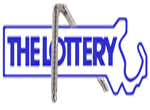Using a lottery to fund your retirement isn't usually a good investment strategy—except, perhaps, if you happen to live in Massachusetts.
There was a hugely fascinating story in the Sunday Boston Globe about how three gambling groups—two of which are backed by computer scientists trained at MIT and Northeastern University—figured out a way to generate a hefty return on their investment in the Massachusetts Cash WinFall lottery tickets.
According to the Globe, the Cash WinFall lottery game has a "quirk" in it that allows a player willing to invest at least $100,000 a virtually guaranteed profit.
As the Globe story explains it:
"...winning at Cash WinFall, it turns out, is all about timing. On one level, the game is simple: If the numbers on six randomly selected balls match the six on your ticket, you win the jackpot. The game also doles out lesser prizes for matching five balls down to as few as two (free ticket)... The jackpot grows gradually over time from a low of $500,000 to a limit of $2 million to $2.5 million; when the limit is reached and no one claims the big prize, the top prize money is poured into the smaller prizes—or "rolled down"—raising the odds of a significant payout..."
"During normal weeks, picking five out of six numbers correctly will generate a $4,000 prize, but the prize rises to $20,000 to $40,000 during rolldowns, depending on how many winning tickets are cashed..."
"Likewise, the prize for picking four of six numbers swells from $150 to $800 or even $1,000, while the prize for picking three numbers jumps from $5 to $26 or more."
"As a result, sophisticated players do not actually want the jackpot to be paid out—unless it is going to them. The odds of winning the lower prizes are so good, that they can gradually win a fortune just by betting hundreds of thousands of dollars every rolldown week."
The Globe consulted Boston University math professor Mark Kon who determined that a player willing to invest $100,000 during a "rolled down" period, which usually happens for a couple of days every three or so months, had a 72 percent chance of winning. Invest more—say, $500,000—and not only are you unlikely to lose, but you're likely instead to walk away with a tidy payout.
In fact, the Globe article states, "Just three groups ... claimed 1,105 of the 1,605 winning Cash WinFall tickets statewide after the rolldown week in May," after purchasing about half the tickets available.
How profitable is the strategy?
The Globe says that:
"Mohan Srivastava, an MIT-educated statistician who gained fame in gambling circles when he found a flaw in a Canadian scratch ticket game that allowed him to pick the winners more than 90 percent of the time... calculated that a gambler who bought 200,000 Cash WinFall tickets during four rolldown weeks in a year would win enough to cover the $1.6 million investment and earn a profit of $240,000 to $1.4 million—without ever winning the jackpot. Srivistava’s calculations suggest that the top five groups and individuals playing Cash WinFall collectively win back the cost of their tickets plus $1 million to $6 million in profits each year from about 12 days of gambling."
Of course, once the story was published—which the gambling groups were obviously unhappy about since it might attract more professional gamblers—there were calls on the Massachusetts Lottery to change the Cash WinFall rules to eliminate the "quirk."
The Lottery did announce a new rule after the story hit that no lottery sales agent could sell more than $5,000 of tickets in a single day. Some gambling groups were purchasing $100,000 worth of tickets from a single agent in a single day.
That didn't go far enough for some, who said that the Cash WinFall game, with its rolldown feature, was always going to be tainted, and should just be stopped, since gambling companies will no doubt find a way around the daily $5,000 constraint.
My guess is that the Massachusetts Lottery will quietly phase out the game in the not too distant future as part of a periodic "refreshing the lottery" makeover. It was probably fun and lucrative while it lasted for a small group of professional gamblers, but I think the party's over for their private lottery.
In other lottery-related news, the Irish National Lottery mistakenly told the 45,000 folks last week who had won a cash prize that they had also won a 150,000 euro (US $246,450) Jaguar XK convertible as well. Oops.
Lottery officials offered their sincere apologies for the mistake.
By the way, does the one true winner of the Jaguar have to pay any tax on the value of the car?
Robert N. Charette is a Contributing Editor to IEEE Spectrum and an acknowledged international authority on information technology and systems risk management. A self-described “risk ecologist,” he is interested in the intersections of business, political, technological, and societal risks. Charette is an award-winning author of multiple books and numerous articles on the subjects of risk management, project and program management, innovation, and entrepreneurship. A Life Senior Member of the IEEE, Charette was a recipient of the IEEE Computer Society’s Golden Core Award in 2008.



